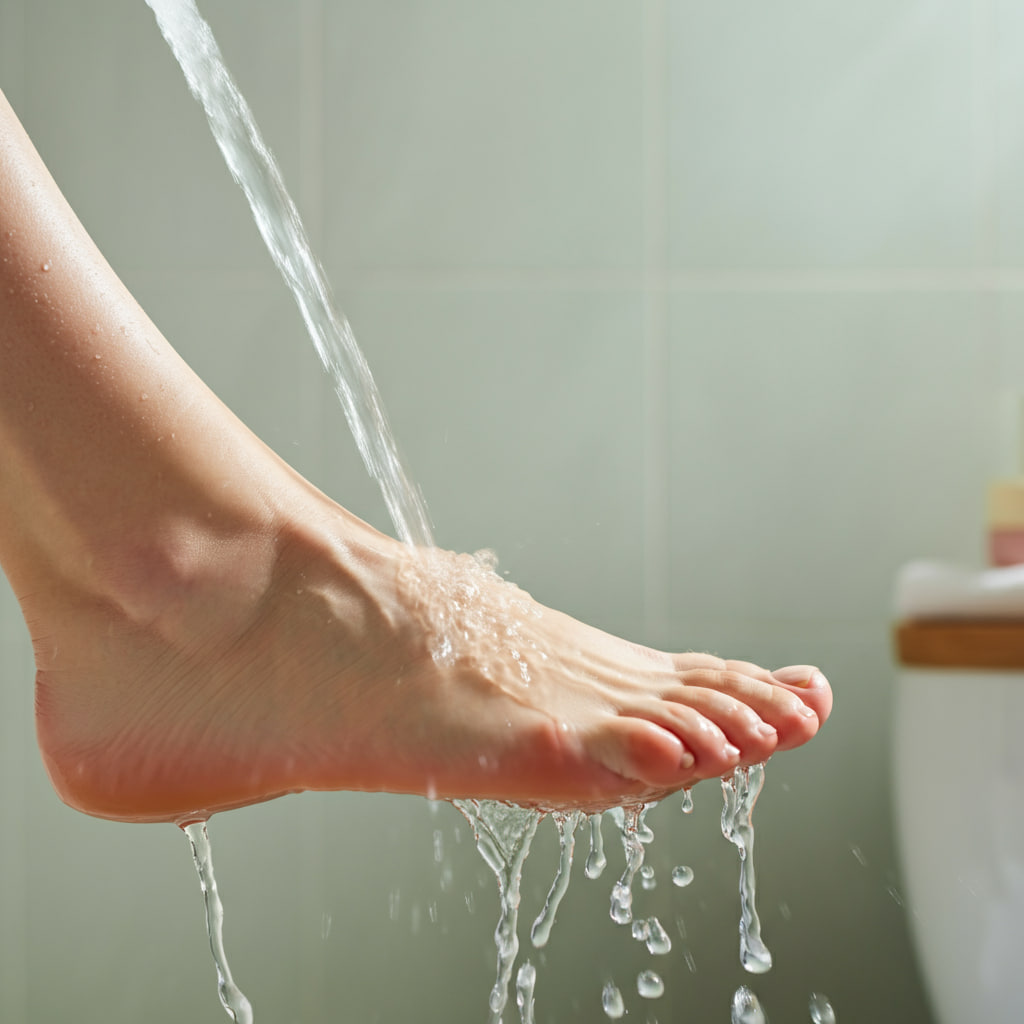When you step into the shower, how much attention do your feet actually get? While scrubbing underarms and soaping up other areas might be part of your routine, your feet often go overlooked. Surprisingly, your feet are home to billions of bacteria, and maintaining their cleanliness is more important than many realize. But how often should you wash them? Let’s explore.
The Hidden Microbial World of Your Feet
Did you know there are between 10,000 to one million bacteria per square centimeter on your skin, with one of the highest concentrations located on your feet? Your soles alone house a diverse biome of bacteria and fungi, including species like Staphylococcus and Corynebacterium, which thrive in the humid, warm environment created by socks and shoes. Add the 600+ sweat glands per square centimeter on your feet, and you’ve got a perfect recipe for microbial growth.
Fungi also flourish on your feet. Species like Candida and Aspergillus call this area home, making your feet the most “biodiverse” region when it comes to fungi. This microbial environment can lead to odor and skin conditions if left unchecked.
Why Washing Your Feet Matters
Skipping foot hygiene could lead to a host of problems—from unpleasant odors to health issues. Here are some reasons why washing your feet matters:
- Prevents odor
Sweat itself is odorless, but when paired with bacteria, it creates volatile fatty acids, such as isovaleric acid, which are responsible for the infamous “cheesy” foot smell.
- Reduces infection risks
Leftover sweat and bacteria can create a breeding ground for infections like athlete’s foot, a fungal condition common in the spaces between toes.
- Protects against more severe complications
For people with conditions like diabetes, foot hygiene plays a crucial role in preventing ulcers and infections that can lead to serious consequences like cellulitis.
How Often Should You Wash Your Feet?
The frequency of foot washing depends on your individual lifestyle and health conditions:
- Daily for certain individuals
If you have diabetes, athlete’s foot, or wear shoes for long hours in hot environments, washing daily with soap and water is non-negotiable. Cleaning every day can reduce harmful microbial buildup and help avoid infections.
- Every 2-3 days for others
For the average, healthy individual, washing your feet every couple of days is usually enough to maintain good hygiene while preserving the protective oils and helpful microbes on your skin.
- After physical activity
If you work out regularly, take a daily run, or spend long hours on your feet, washing them after intense activity is essential to remove sweat and bacteria.
The Right Way to Wash Your Feet
Washing your feet might sound straightforward, but there’s more to it than simply letting water run over them. Here’s how to do it right:
- Use warm, soapy water
Lather your feet thoroughly, paying close attention to areas like the soles and in-between your toes.
- Don’t forget your toenails
Clean under your nails to remove trapped dirt and bacteria.
- Dry properly
Damp, warm areas are a paradise for fungal growth. Use a clean towel to dry your feet thoroughly, especially between the toes.
- Add moisturizer (if needed)
Keep the skin hydrated to prevent cracking, but avoid over-moisturizing between the toes as this can trap moisture.
Special Tips for Foot Hygiene
- Avoid overwashing
Washing too often or using harsh soaps can strip your skin of its natural oils, leading to dryness, irritation, and cracking, which can allow bacteria to enter.
- Wear breathable footwear
Shoes made of breathable materials and clean socks help regulate moisture levels and reduce bacterial buildup.
- Exfoliate occasionally
Remove dead skin that might harbor bacteria using a gentle exfoliating scrub, but avoid overdoing it to maintain your skin’s natural protective barrier.
The Bottom Line
Your feet might be out of sight most of the time, but they shouldn’t be out of mind when it comes to hygiene. Proper foot care can prevent both odors and infections, giving you healthy, happy feet.
Call to Action
Taking care of your feet is not just about washing them but also checking regularly for dryness, abrasions, or minor wounds. By making foot hygiene a priority, you’re taking a crucial step toward better overall health.
Start today and give your feet the attention they deserve!








